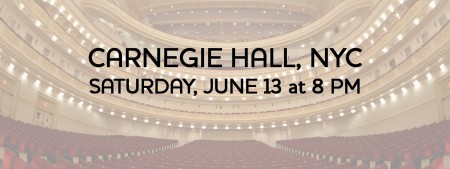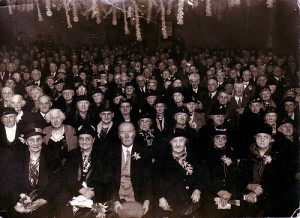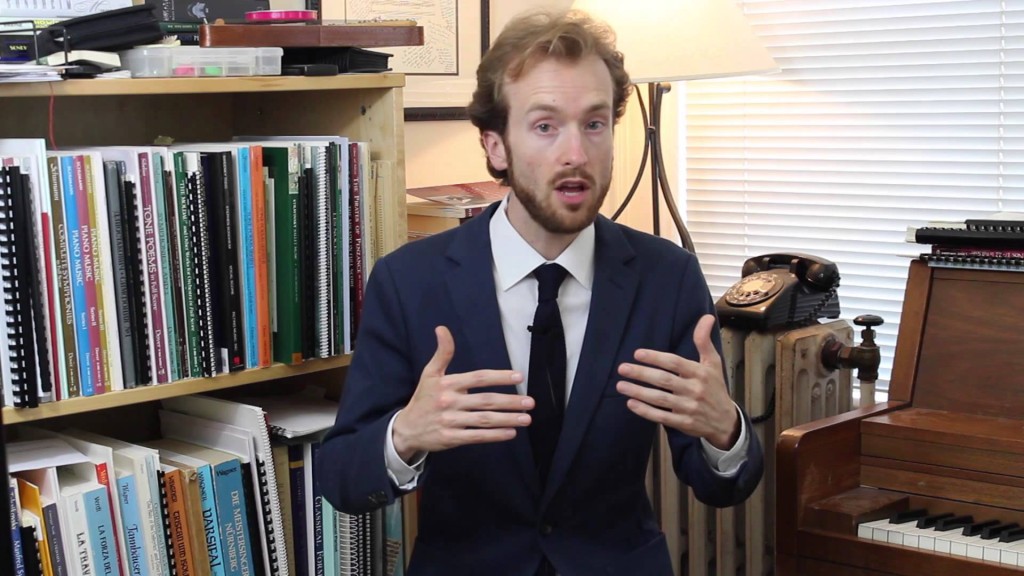Perché l’italiano? C’è la riposta:
Posts By: willcwhite
Carnegie Hall: June 13

Dear People of New York City, the Surrounding Region, and the World-at-Large:
On Saturday, June 13, in the Year of our Lord 2015, I am importing two (2) busloads of Ohioan teenagers to perform my music and the music of my bae, Alfred Schnittke, at Manhattan’s famous “MVSIC HALL” founded by Andrew Carnegie.
You are all hereby formally invited, so buy a ticket.
Saturday, June 13, 2015, 8:00 p.m.
Cincinnati Symphony Youth Orchestra
William White, conductor
Schnittke……The Story of an Unknown Actor
Prokofiev…..Romeo & Juliet (selections)
Schnittke…..(k)ein Sommernachtstraum
White………..Symphonic Essay No. 3
The program has a theatrical flair: two of the pieces take their inspiration from Shakespeare (the immortal bard!) and the “Unknown Actor” comes from a Soviet film about a thespian in the sticks.
My piece, which also doubles as the third movement of my Symphony, shares with Schnittke’s music a certain zany irreverence, particularly appropriate, I think, for a concert timed nearly to coincide with the summer solstice.
I do hope that you will join us, and I look forward to seeing you there!
White pants & shoes are only worn between Memorial Day and Labor Day
“That’s not the rule anymore.”
“Says who?”
“The leading fashionistas.”
Oh, well, the leading bankers say that the laws about insider trading no longer apply, so print me a check! The leading cartels say that the laws about drug trafficking don’t apply, so load me up! The leading gangsters say that the rules about not shooting people no longer apply, so get me my Gatling gun!!
As a matter of fact, why don’t we just forget about this whole civilization thing altogether and walk around buck naked? If you see someone who looks good, knock ’em out, fry ’em up, and have a delicious afternoon snack, why don’t you!?
We have a word for people who live outside the law: criminals. And anyone who wears white pants, shoes, or dinner jackets before Memorial Day or after Labor day is a fashion criminal. Citizens of most nations have recourse to high courts and legislatures to change their laws. There is no such ruling body for seasonal fashion, no sartorial supreme court.
Ergo, the rule remains in tact. End of discussion.
Symphony in Three Movements
3.3.3.3 – 4.3.3.1 – tmp+3 – 2hp – strings
Composed between January 2014 – May 2015
Movement I:
Movement II:
Movement III:
Movement I is also known as the Symphonic Essay No. 1 and was premiered by the Cincinnati Symphony Youth Orchestra under my own baton in March of 2014. It has had subsequent performances by the El Paso Symphony Youth Orchestra under Andres Moran.
Movement III is also known as the Symphonic Essay No. 3 and was premiered by the Cincinnati Symphony Youth Orchestra under my own baton in May of 2015. Subsequent performances by the CSYO at Carnegie Hall in June of 2015.
The recordings presented here are for demo purposes only and were made at CCM’s Corbett Auditorium by the CSYO under the direction of yours truly and were recorded by Jon Brennan.
On mature audiences

Lots of smart people work to make classical music – and orchestral concerts in particular – more appealing to young audiences. This is great, but let’s not throw the baby out with the bathwater, said bathwater being either the things about classical concerts that are great, and/or the mature people that regularly patronize said concerts.
One mistake that we in the biz regularly make is to assume that either people come to classical music early in life or not at all. Â But guess what: all those older people filling the seats didn’t come to the orchestra world as ‘the class of 1964’. Â Some probably started coming when they got their first real job because their company made tickets available, some might have started coming after their kids went away to college, others might have started coming as part of a senior group.
As far as I’m concerned, people come to classical music when they’re ready for it. This music is the deepest philosophy that we can imbibe in our souls, and it requires a maturity and sensitivity that many young people lack but develop with age and perspective.
And I think there’s a casual age-ism in lumping everyone over 60 together as “old people” and everyone under 40 as “young” (the middle aged 40-60 crowd scarcely gets any attention in the orchestral universe) and it’s something we ought to avoid. To me the best thing about classical music is that it’s so multigenerational.
The fact that there are many grey heads scattered throughout the concert hall isn’t a cause for panic – it’s a testament to the fact that once classical music hooks you, you stay with it for life.
